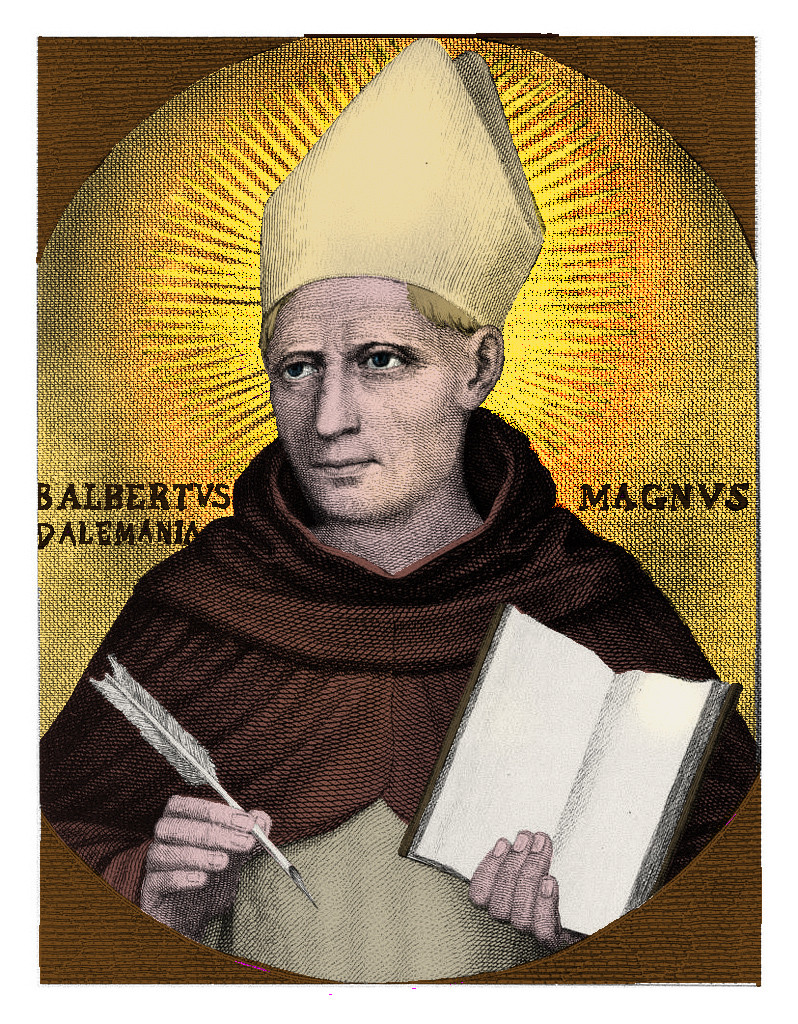1280
Death of the Universal Doctor. Albertus Magnus, Albert the Great, was a priest, bishop and one hailed as the most learned man of his day. Born c. 1200 into a German aristocratic family he joined the Dominican order, receiving his doctorate in theology at the University of Paris where he taught the young Thomas Aquinas.
This was the era when the Church was struggling with how best to deal with the writings of the newly-rediscovered Aristotle and the great philosopher’s Arab commentators. Albertus and Thomas Aquinas defended the synthesis of Christian thought and Aristotle against both those who drank too deeply from Averroes (the most influential of the commentators) and those who feared the intrusion of pagan philosophy. In doing so they built the foundations of Scholasticism which provided the Catholic Church with its approach to theology for centuries.
The thirteenth century was also a time of growing interest in the natural sciences. Those who claim that the Church ignored or suppressed science in the Middle Ages have to ignore the contributions of Albertus or his English Franciscan contemporary Roger Bacon. Botany, geography, mineralogy, chemistry, optics and physics were among the areas mastered by Albertus with an emphasis on observation and experimentation. In insisting that God had given humanity two guides to knowledge, scripture and nature, the work of Albertus helped lead to the first Scientific Revolution, one largely carried out by the clergy of the thirteenth and fourteenth centuries.
So wide was his learning that his contemporaries called him the miracle of the age; later admirers would say Nil tetigit quod non ornavit – “He touched nothing that he did not adorn”. He is the patron saint of philosophers and scientists.
